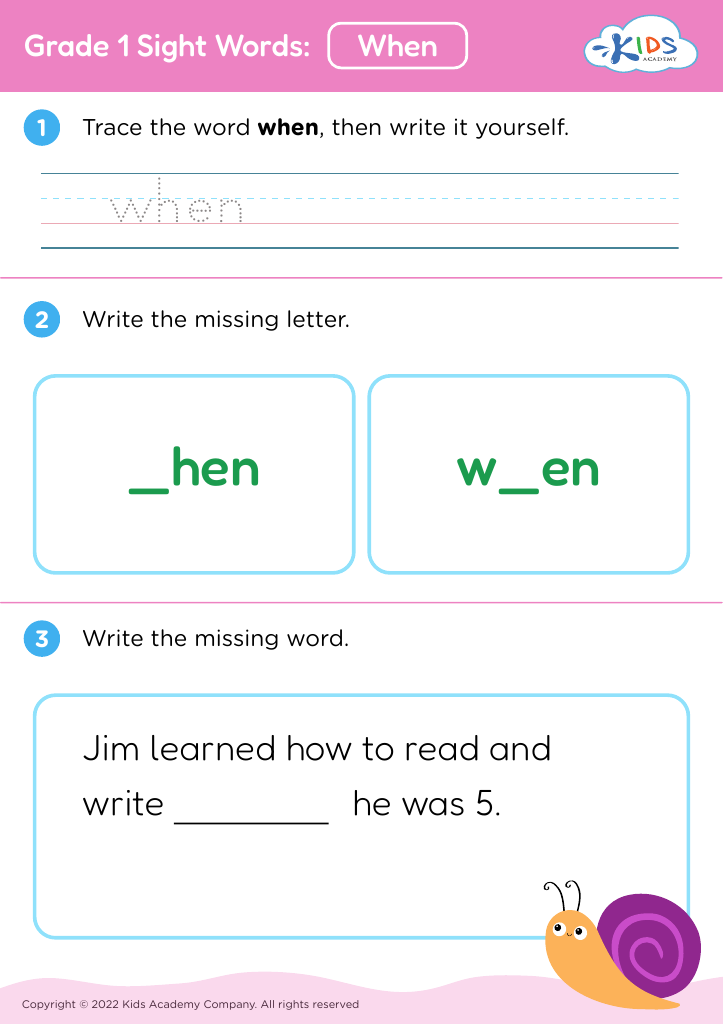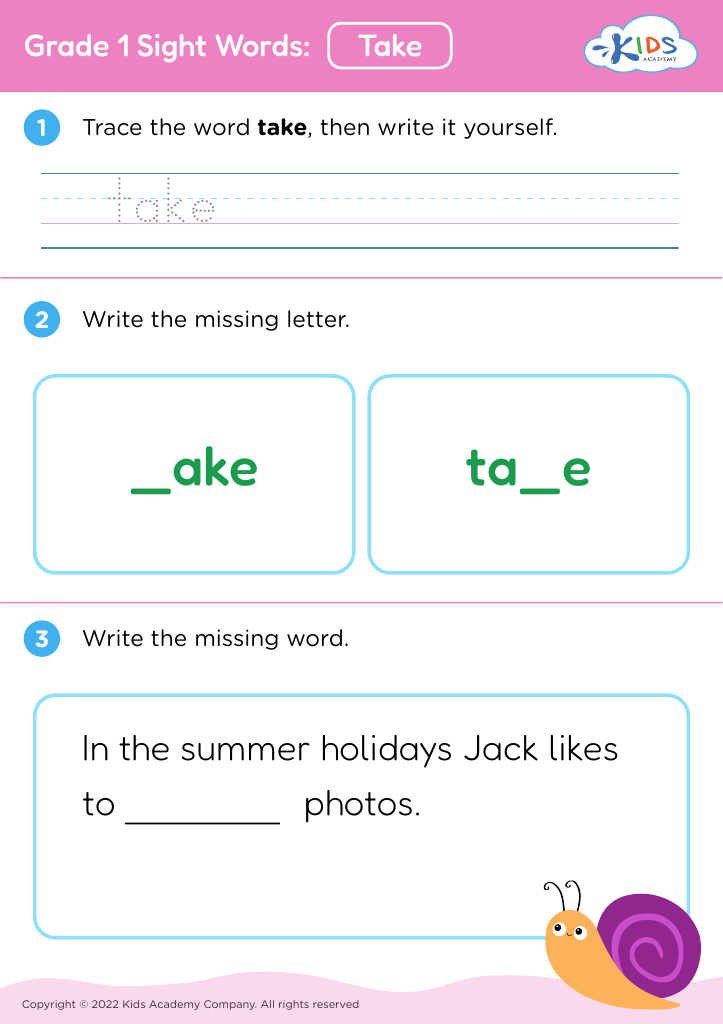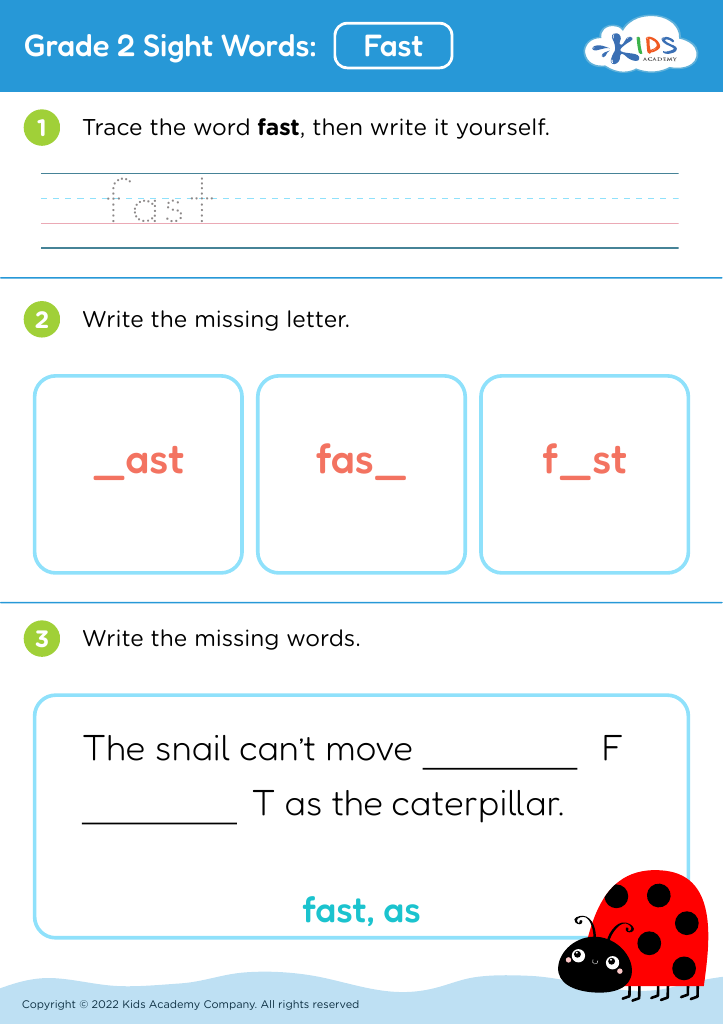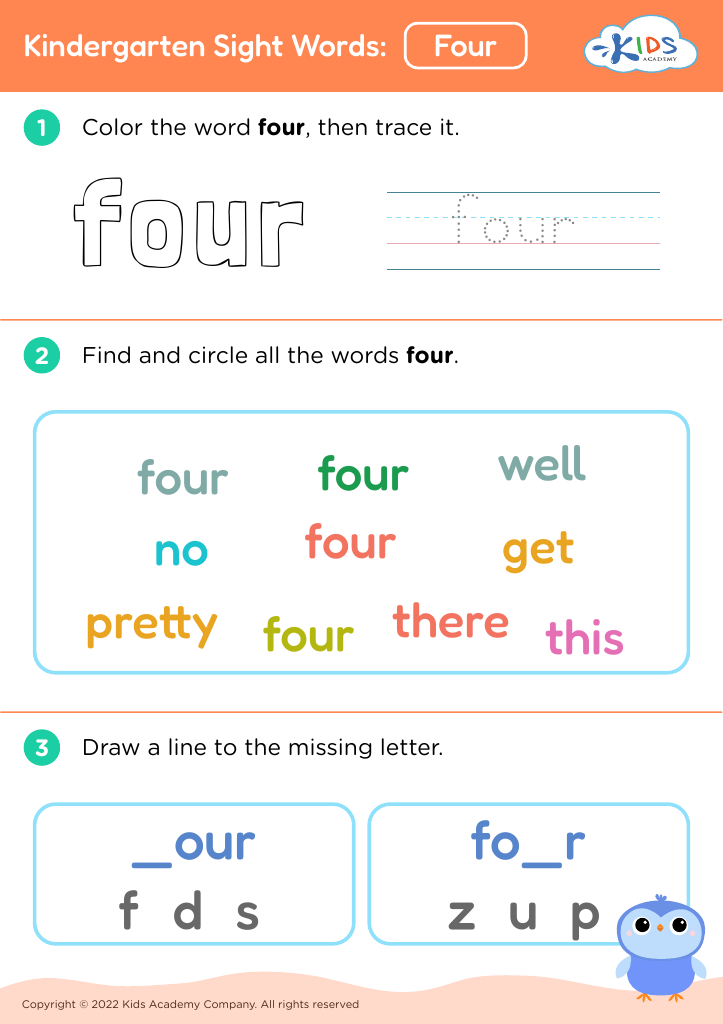Subtraction practice Building Vocabulary Worksheets for Ages 5-7
4 filtered results
-
From - To
Enhance your child's learning experience with our Subtraction Practice Building Vocabulary Worksheets designed specifically for ages 5-7. These engaging worksheets not only reinforce critical subtraction skills but also promote vocabulary development. Each sheet features colorful illustrations and fun activities that captivate young learners, making math enjoyable. Your child will practice essential subtraction while discovering new words, creating a well-rounded educational approach. Ideal for both home and classroom use, these resources help strengthen foundational math skills while expanding vocabulary. Download our printable worksheets today and watch your child build confidence in subtraction and language skills simultaneously! Perfect for early learners!
Parents and teachers should prioritize subtraction practice and vocabulary building for children aged 5 to 7 because these skills form the foundation for later mathematical understanding and effective communication. At this critical developmental stage, children are not only learning to subtract but also building their mathematical vocabulary, which enhances their comprehension of concepts.
Subtraction practice helps children develop number sense and problem-solving skills. When they engage in various activities that reinforce subtraction, such as using manipulatives or playing games, they learn to visualize problems and derive solutions, laying the groundwork for more complex mathematical operations in the future.
Additionally, building vocabulary related to mathematics supports cognitive development and enriches children's ability to express their thoughts accurately. Words like "take away," "difference," and "minus" are integral to understanding mathematical concepts. A robust mathematical vocabulary helps children articulate their thought processes and fosters a more profound understanding of mathematics.
Moreover, mastering subtraction can boost children’s confidence in their abilities and encourage a positive attitude toward math. This early success fosters a relationship with mathematics that is conducive to lifelong learning. Ultimately, investing in subtraction practice and vocabulary building during these formative years is essential for nurturing capable, confident, and critically thinking learners.


















.jpg)












